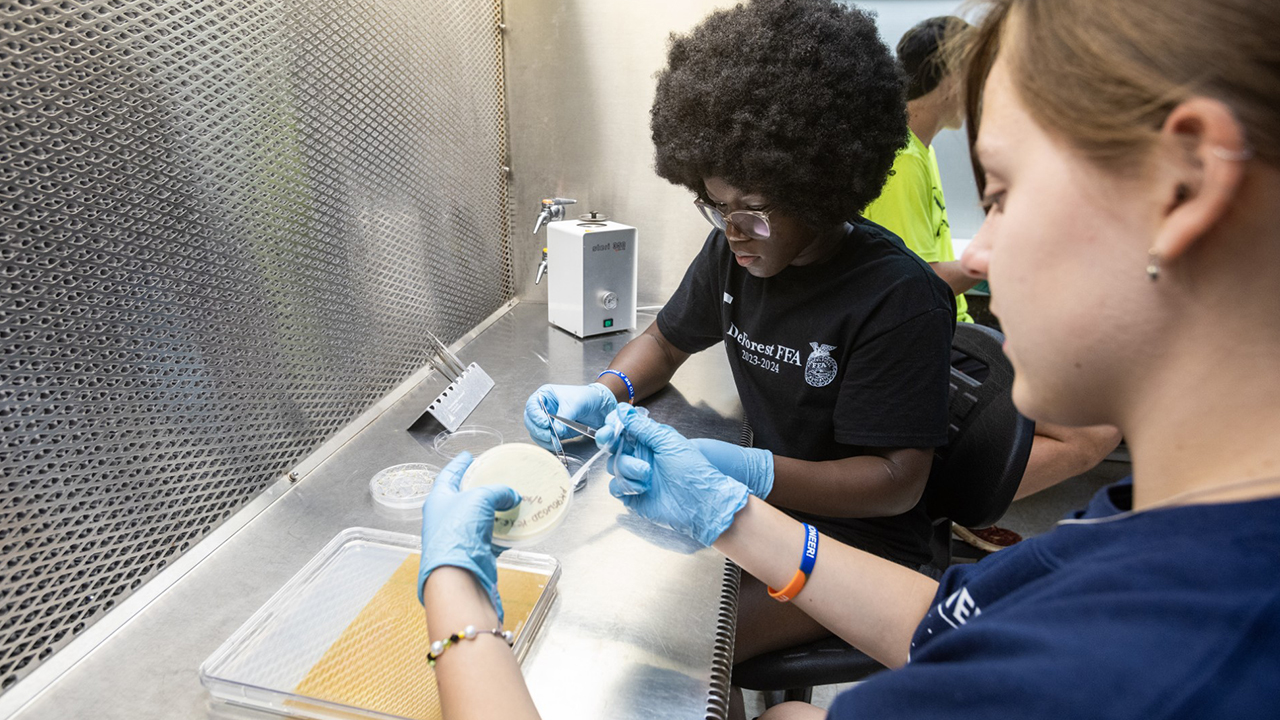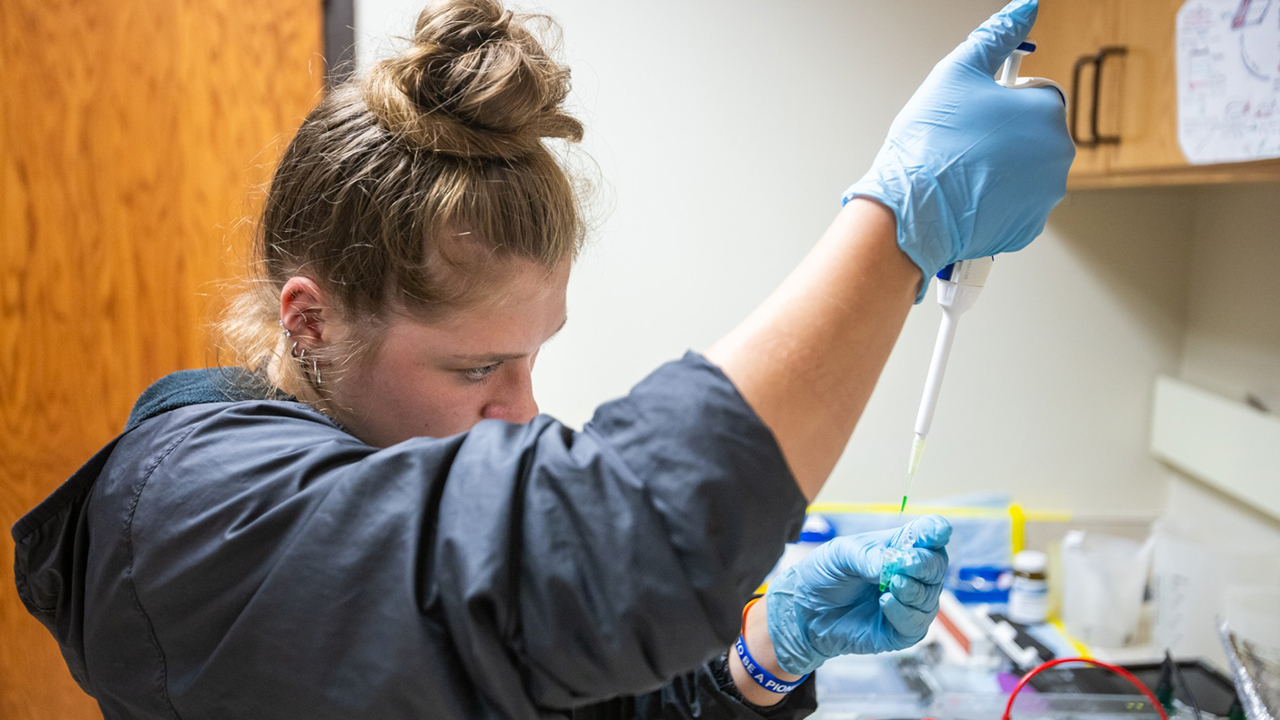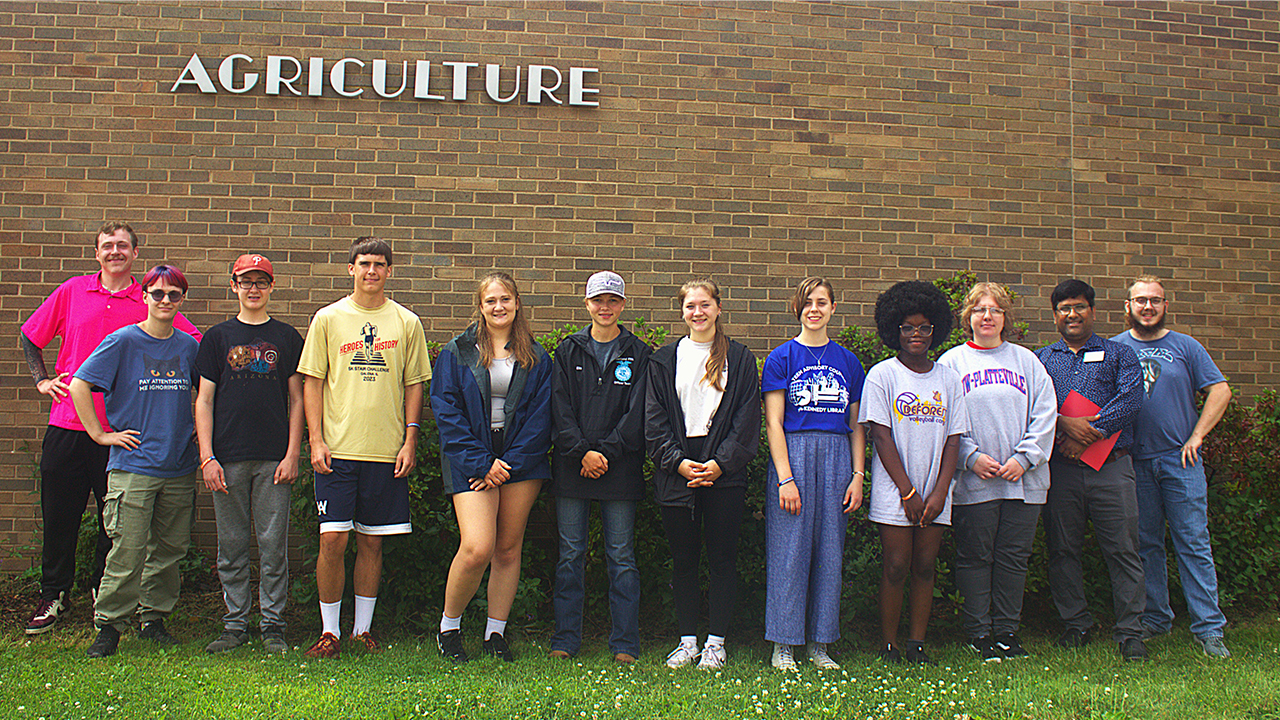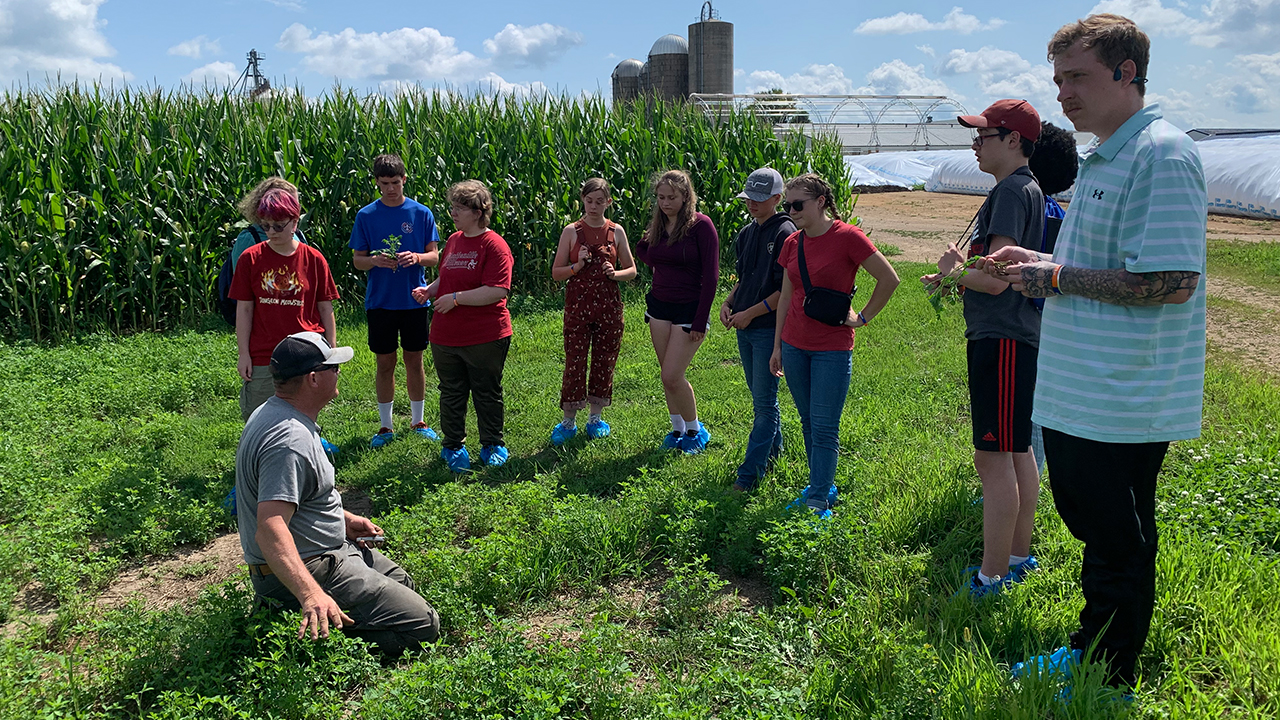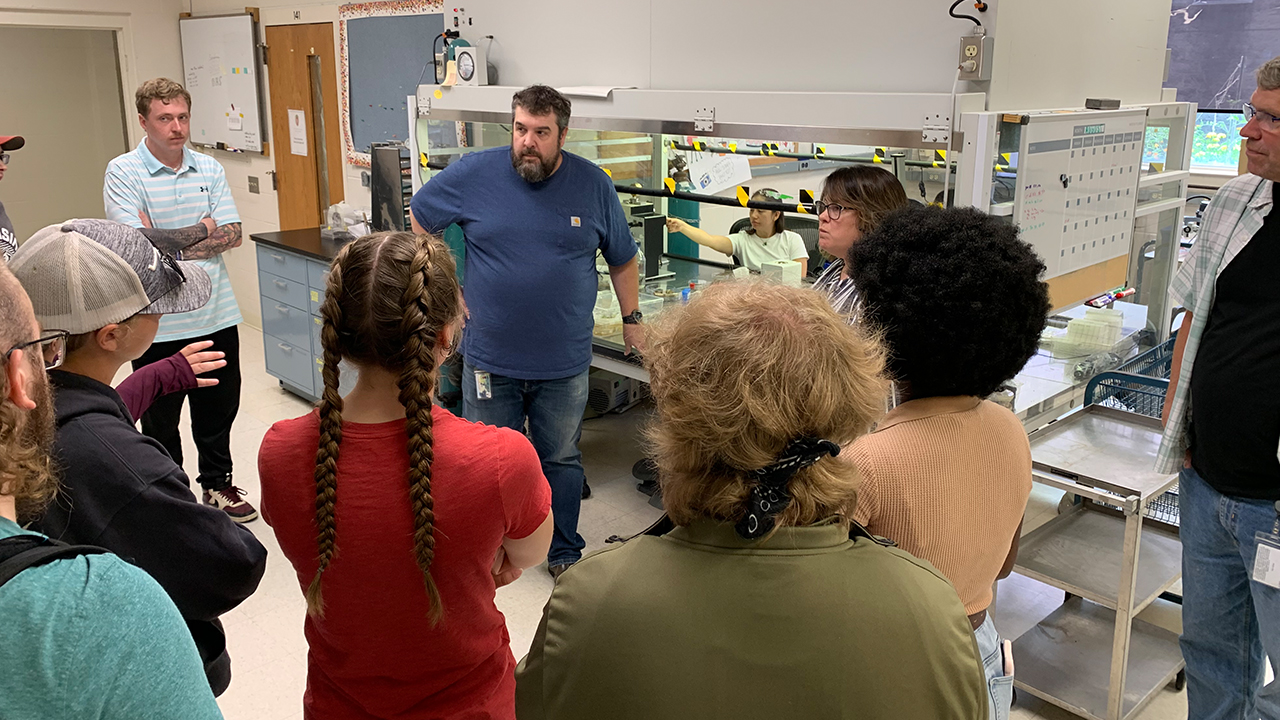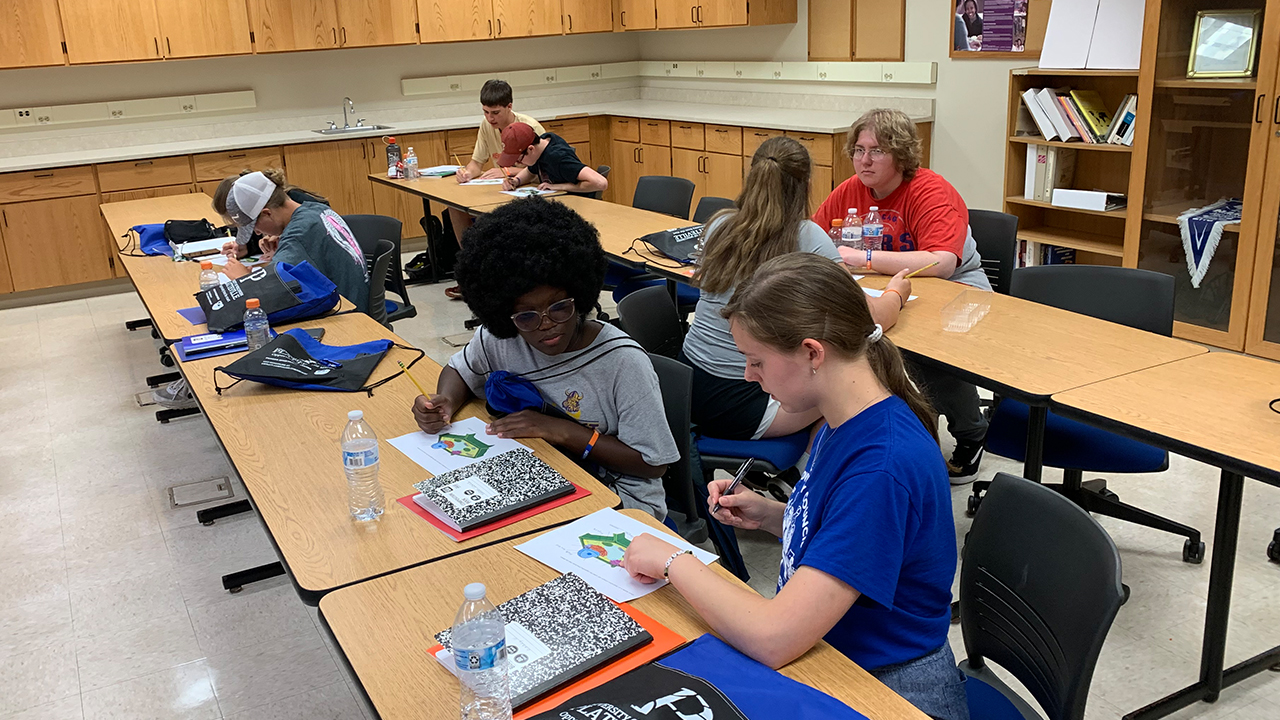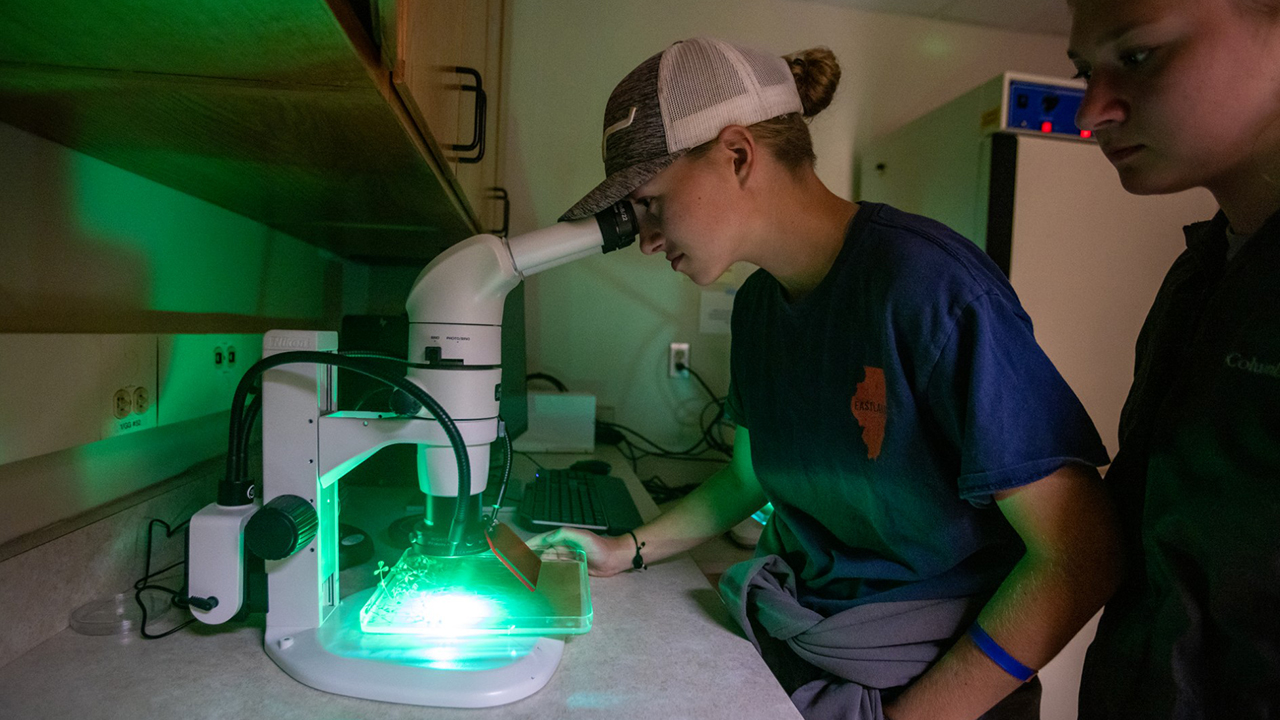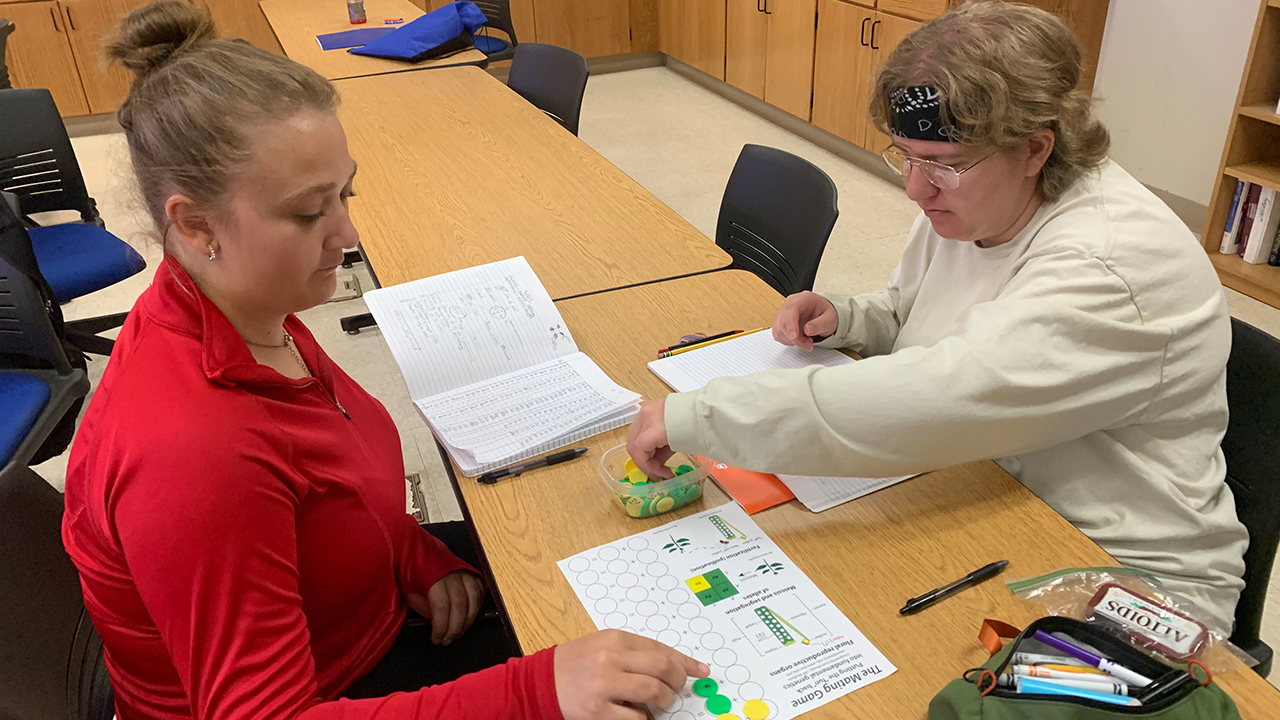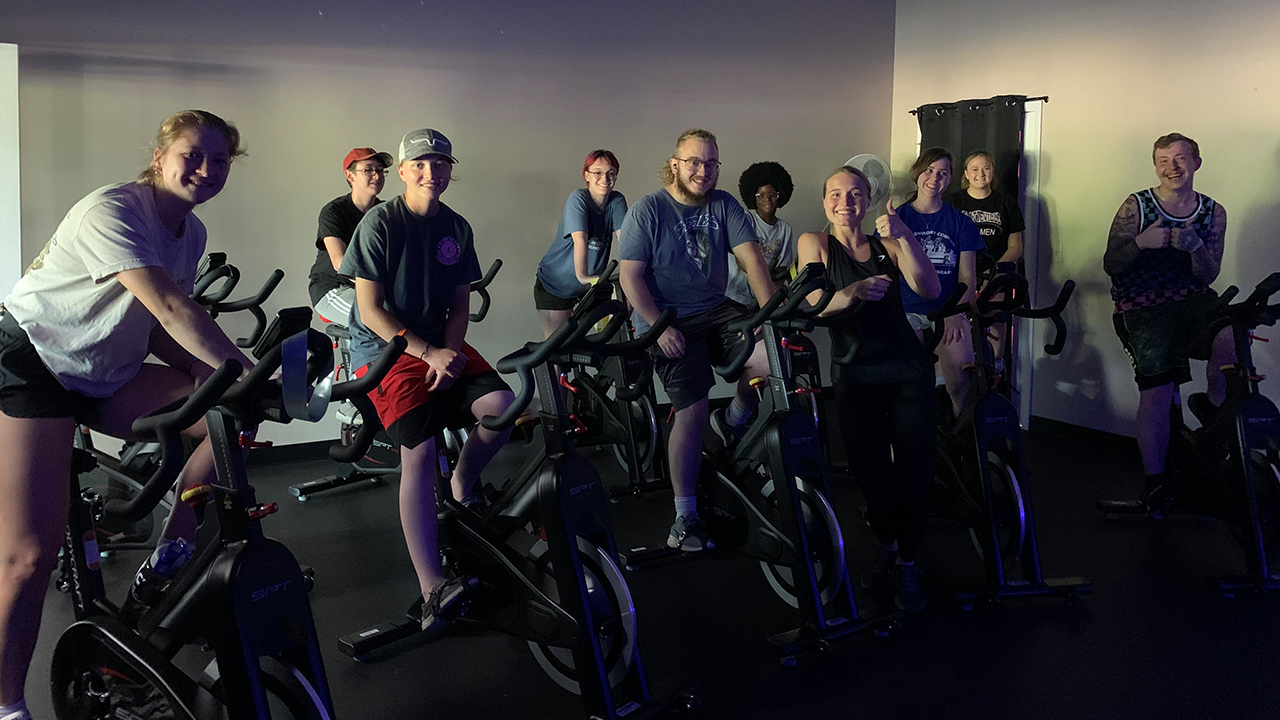Eight high school students from the tri-state area participated in the Plant Biotechnology Boot Camp held July 29 through Aug. 2 at the University of Wisconsin-Platteville. The week-long residential boot camp offered hands-on learning opportunities in the areas of plant biotechnology, genetics, molecular biology, plant pathology and microbiology.
“The other goals of this boot camp are to develop interests among high school students to advance their education in plant biotechnology and to help students develop a higher appreciation for research and development and interests to pursue research in the above-mentioned fields,” said Dr. Muthu Venkateshwaran, professor of crop physiology and molecular biology in the School of Agriculture and the program director for the Plant Biotechnology Boot Camp.
The students experienced many techniques, such as plant tissue culture, plant genetic transformation, genomic DNA isolation, polymerase chain reaction and gel electrophoresis, among others. In addition to learning new concepts and gaining technical skills in plant biotechnology, the boot camp offered opportunities for students to explore extracurricular activities, such as yoga and spinning classes, thanks to Alexia Jansen, instructor at Group Fitness in Platteville.
The student participants went on field trips to visit the state-of-the-art facilities at the Wisconsin Crop Innovation Center, in Middleton, Wisconsin, one of the leading plant genetic transformation facilities in the nation. They also toured UW-Platteville’s Pioneer Farm.
One high school participant remarked: “The most valuable experience was the equal amounts of lessons and applying those in real time. Also, the two trips to the Wisconsin Crop Innovation Center and the UW-Platteville Pioneer Farm showed how diverse plant biotechnology applications can be and how different the jobs that use them can look from one another.”
“Hosting high school students in a residential boot camp is a huge responsibility,” said Venkateshwaran. “At the same time, upon successful completion of the boot camp, we felt a great sense of satisfaction that we were able to motivate the younger generation. I am very thankful to my research team and the two camp counselors, Lillian Dalbey, a sophomore majoring in biology, and Zach Houghton, a senior majoring in chemistry, who helped run this boot camp successfully. We received tremendous support from our campus communities, particularly from the College of BILSA, the School of Agriculture, Youth Programming, Dining Services and Residence Life.”
“It was a fun and educational experience that I believe everyone really enjoyed,” said Chance Huberty, research technician in Venkateshwaran’s lab, who co-hosted this event. “It helped inform the students of different aspects of biotechnology while performing cool experiments that I think will get them excited to pursue a career in plant biotechnology."
The Plant Biotechnology Boot Camp was funded through a National Science Foundation-CAREER grant awarded to Venkateshwaran, and this week-long residential boot camp was offered at no cost to the student participants.

